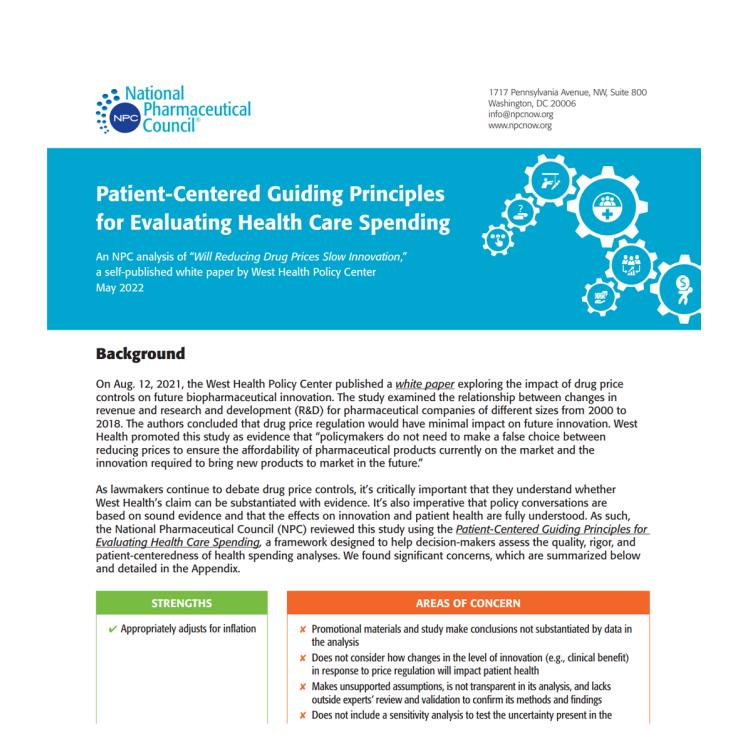Author: National Pharmaceutical Council
Publication: May 2022
On Aug. 12, 2021, the West Health Policy Center published a white paper exploring the impact of drug price controls on future biopharmaceutical innovation. The study examined the relationship between changes in revenue and research and development (R&D) for pharmaceutical companies of different sizes from 2000 to 2018. The authors concluded that drug price regulation would have minimal impact on future innovation. West Health promoted this study as evidence that “policymakers do not need to make a false choice between reducing prices to ensure the affordability of pharmaceutical products currently on the market and the innovation required to bring new products to market in the future.”
As lawmakers continue to debate drug price controls, it’s critically important that they understand whether West Health’s claim can be substantiated with evidence. It’s also imperative that policy conversations are based on sound evidence and that the effects on innovation and patient health are fully understood. As such, the National Pharmaceutical Council (NPC) reviewed this study using the Patient-Centered Guiding Principles for Evaluating Health Care Spending, a framework designed to help decision-makers assess the quality, rigor, and patient-centeredness of health spending analyses. We found significant concerns, which are summarized and detailed in the PDF.

Download the Case Study
Read NPC's analysis of “Will Reducing Drug Prices Slow Innovation,” to understand how to apply our Health Care Spending Guiding Principles to health research.

Health Care Spending Guiding Principles
NPC's principles are intended to guide a rigorous, evidence-based evaluation and discussion of health care spending estimates and policies. They aim to improve health care spending efficiency and maximize patient health.